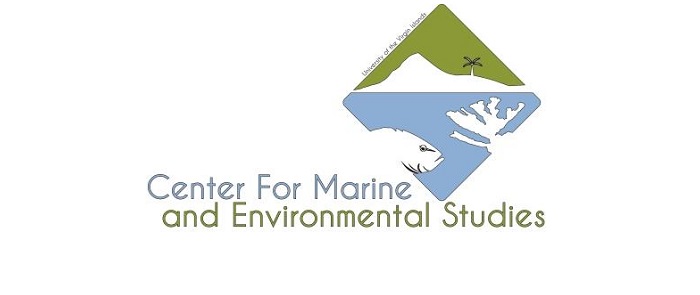

UVI Internet
Research
- Research Activities
- Agricultural Experiment Station (AES)
- Caribbean Exploratory Research Center (CERC)
- Alliance for Responsive Investment in Children’s Health: Virgin Islands (A RICH VI)
- Caribbean Green Technology Center (CGTC)
- Center for Marine & Environmental Studies (CMES)
- Eastern Caribbean Center (ECC)
- Emerging Caribbean Scientists (ECS)
- Etelman Observatory
- Institutional Research
- Title III and Sponsored Programs
- Research & Public Service (RPS)
- Research & Technology Park (RTPark)
- Research Day
- VI-EPSCoR
- Water Resources Research Institute (WRRI)
Research and Public Service Background

The coastal ecosystems of the Virgin Islands, including coral reefs, sea grasses, mangroves, coastal wetlands, and forest watersheds are the centerpiece of hopes for a future sustainable economy. Over 2.5 million tourists visit the USVI each year, spending an estimated $1.47 billion annually. Tourism is dependent upon clean water and healthy coastal ecosystems which provide the unique experience and lifestyle so valued by visitors and residents. Furthermore, these same ecosystems provide not only fresh fish year-round to residents and visitors alike, but also function to dilute, disperse, and metabolize the effluents of the growing population, thus maintaining healthy coastal waters.
Since the late 1970's there have been growing signs that population growth and land development in the Virgin Islands have stressed coastal ecosystems, endangering the islands' economic foundations. Deforestation for development, haphazard road construction, sewage discharge and solid waste disposal have destabilized the land. Seasonal rains send large amounts of soil and pollutants into the sea that are inimical to marine habitats and organisms. Coastal mangroves and adjacent seagrass beds, critical nurseries for fishes and other organisms, have been damaged by coastal construction, dredging, and runoff. Offshore coral reefs, once protected from runoff by the shoreward ecosystems, have shown a steady decline, exacerbated by over-fishing. There are clear signs that Virgin Islanders need to take immediate action to abate and halt these harmful human activities.
In recognition of the importance of the coastal resources to the well being of the Virgin Islands' community, the University of the Virgin Islands created the Center for Marine and Environmental Studies in 1999. The purpose of this center is to provide the needed research expertise to address problems that have a critical impact on coastal marine ecosystems. The Center for Marine and Environmental Studies is one of nine individual units which make up the Research and Public Service (RPS) component of the UVI.
Since the late 1970's there have been growing signs that population growth and land development in the Virgin Islands have stressed coastal ecosystems, endangering the islands' economic foundations. Deforestation for development, haphazard road construction, sewage discharge and solid waste disposal have destabilized the land. Seasonal rains send large amounts of soil and pollutants into the sea that are inimical to marine habitats and organisms. Coastal mangroves and adjacent seagrass beds, critical nurseries for fishes and other organisms, have been damaged by coastal construction, dredging, and runoff. Offshore coral reefs, once protected from runoff by the shoreward ecosystems, have shown a steady decline, exacerbated by over-fishing. There are clear signs that Virgin Islanders need to take immediate action to abate and halt these harmful human activities.
In recognition of the importance of the coastal resources to the well being of the Virgin Islands' community, the University of the Virgin Islands created the Center for Marine and Environmental Studies in 1999. The purpose of this center is to provide the needed research expertise to address problems that have a critical impact on coastal marine ecosystems. The Center for Marine and Environmental Studies is one of nine individual units which make up the Research and Public Service (RPS) component of the UVI.